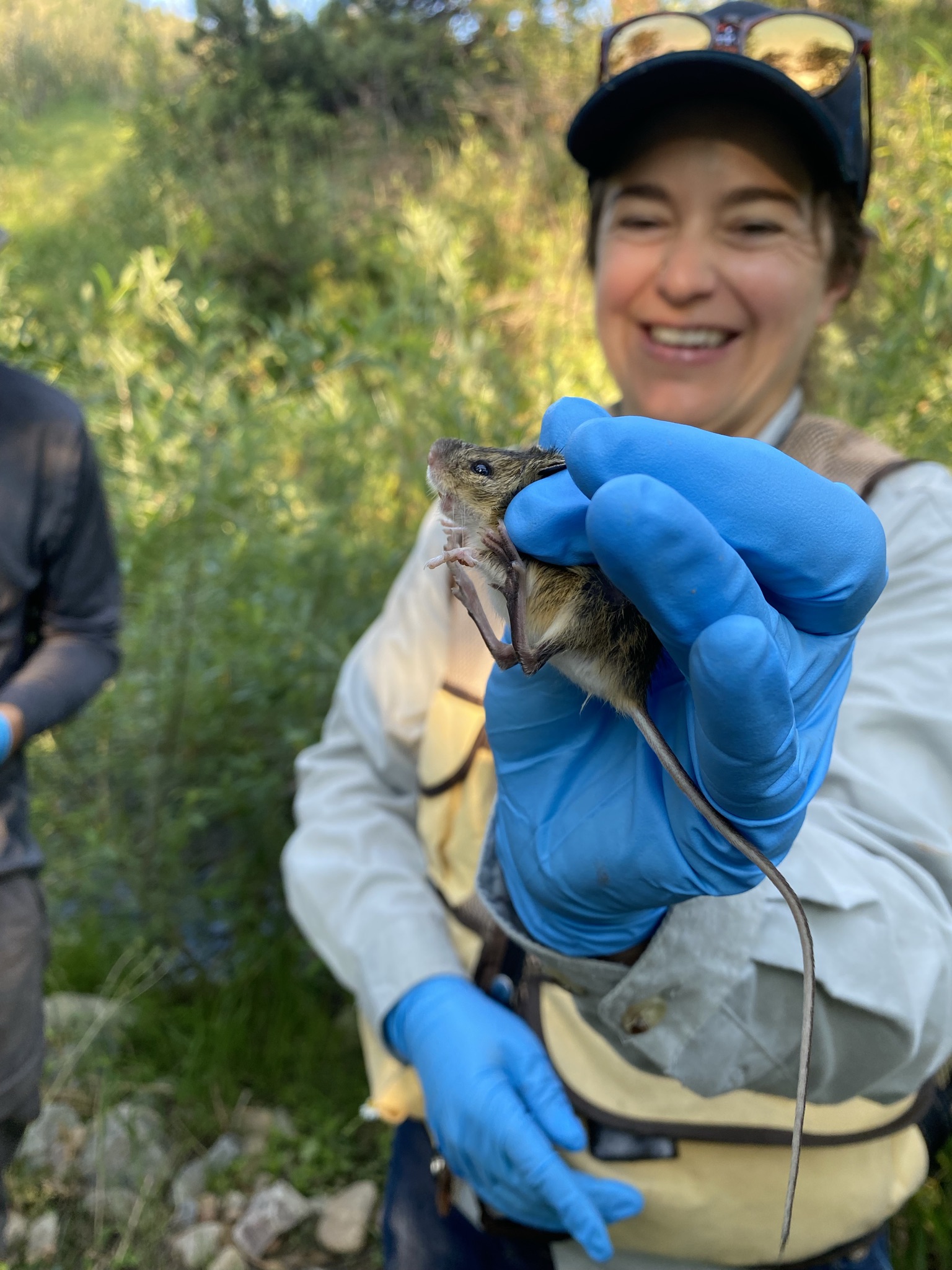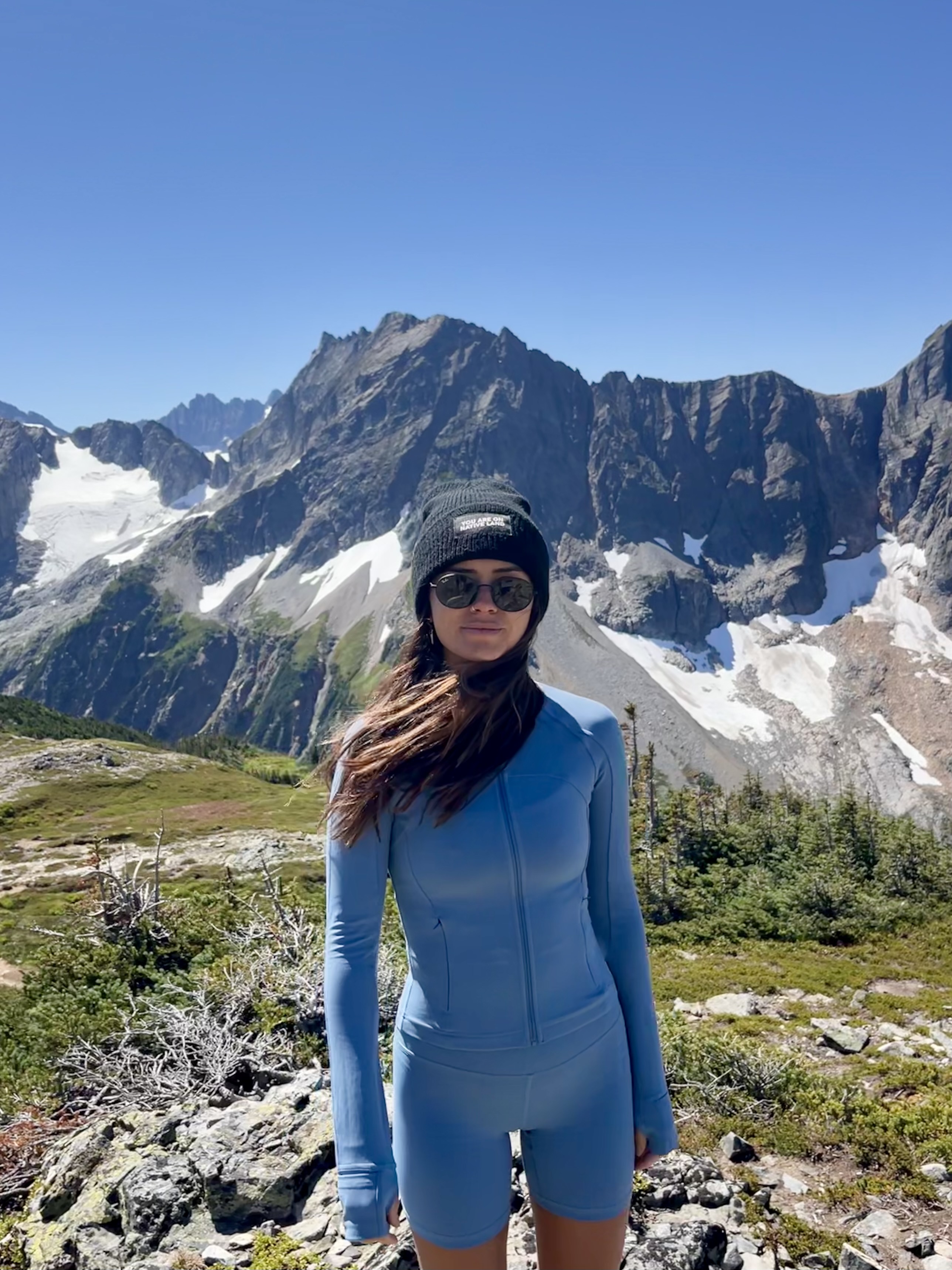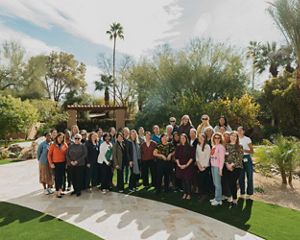
Women in Conservation To have our greatest impact on the planet, nature needs inclusive and collaborative perspectives. © Lauryn Wachs/TNC
Ask TNC in Colorado’s Conservation Ecologist Chelsea Beebe what excites her in the field of conservation, and she’ll tell you about the small, long-legged Preble’s meadow jumping mouse (Zapus hudsonius preblei). This little brown mouse lives in riparian areas along Colorado’s Front Range and Southern Wyoming and is currently listed as federally threatened due to habitat decline and drought. Beginning in graduate school and continuing throughout her career, Chelsea has designed studies, identified habitat needs and created management plans at the park and county levels to protect this mouse and hopefully restore populations enough to get it delisted—removed from the list of federally threatened species. In her words, “This is the reason we do it.”
Stay connected
Sign up to receive monthly conservation updates from Colorado
As she was establishing herself, Terri got accustomed to being the only woman in the room when meeting with partners. Some people questioned whether she was qualified to be included in conversations and decisions, even with her years of education and experience in the field. “I just had to prove it...I did know what I was talking about.” Over the last 15 years, however, the rooms have started to look different. Many more women are entering the field of conservation and working in and managing programs across TNC and beyond. Now, early career conservationists look to Terri for advice and guidance.

What does a career in conservation look like?
Part of what may be holding young women back is the fact that conservation careers don’t all look the same. Paige Lewis, deputy director of TNC in Colorado and director of conservation, talks about facing this in her own career journey.
“I often wish I had known more about the kinds of jobs that could be involved in conservation. My impression in college was that careers in natural resources and conservation meant you were an on-the-ground manager, like a forest ranger or a soil scientist or a wildlife biologist. I didn’t know you could also work in policy or planning or communications and think about how to bring people with very different interests together for common solutions. I just had no idea of the breadth of possibility until I ended up in a conservation role and discovered how many opportunities there are to contribute.”
There is room for improvement in how we collectively talk about jobs in conservation.

The truth is that conservation requires people of all backgrounds and skill sets to be successful. “If someone had asked my 20-year-old self what I thought I would be doing for a conservation career,” says Heidi Sherk, director of external affairs, “I don’t think in my wildest dreams I ever thought that I would be here or in a job in Boulder, Colorado.” Heidi spends more time at the state capitol in Denver and reading legislation than trekking through the wilderness, at least while she’s at work. She and her team translate science and conservation priorities into legislation, funding and programs at the federal, state and local levels. The two pieces of the puzzle work in tandem to make the biggest impact: “I think our policy work is really strengthened by the fact that we do on-the-ground or in-the-water work. Then we build our policy approaches to either support that on-the-ground work or to change the rules so that they’re more favorable toward conservation.” Understanding policy and being able to communicate effectively are critical to drive change and can create incentives and improve enabling conditions for environmental protection.

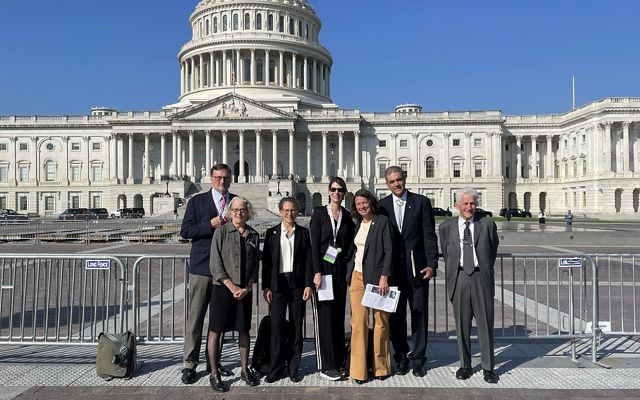
Quote: Annie Turek
There are so many different ways to be a conservationist.
Learn more about the Maybell Diversion Project
This collaborative project aims to support agriculture, recreation, fish habitat & more.
Read the storyAnnie Turek, conservation project manager, and Diana Lane, director of TNC in Colorado's Sustainable Food and Water Program, are in roles that require balancing the science that drives TNC’s work with the logistics of everyday resource management. This means working with partners like neighboring landowners, applying for public funding to get projects on the ground and ensuring projects comply with regulations.
When asked what has surprised her most about working in conservation, Diana answered, “It’s always all about people, right? Getting anything done is about people and their roles and their values.” She makes it clear why: “It’s a very human values-based work, because we protect what we value, we restore the values we want to see.” Connecting to the human side of the work and understanding how to find shared interests are central to accomplishing big goals, like updating agricultural infrastructure in a river or placing a conservation easement on a ranch in eastern Colorado.
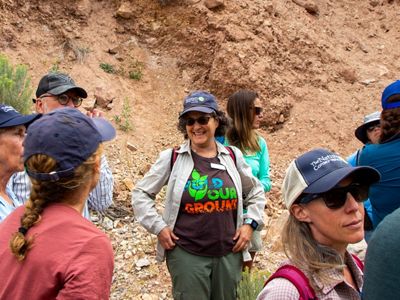
Annie always thought she would work in marine conservation for the entirety of her career. Her current role, however, involves project management across various landscapes and conservation initiatives in Colorado. She provides thought partnership, organizational frameworks, facilitation and other support to ensure complex conservation projects can be successful. She also says it’s the happiest she has ever been in a job. “I’ll always care about the individual conservation topics, but it’s not as much the subject matter as feeling like I’m in a role that plays well to my skills and where I can really help create a difference and help drive change.”

Advice for early-career conservationists
All of these women have ended up at TNC in conservation, but no two career paths are the same, and none of them expected to be where they are now. It can be intimidating for early career individuals and particularly women to know the best path for making the difference they want to see in the world. “In the field of conservation, there is so much need,” says Paige. “I would just encourage women to explore the range of ways that their passions and interests might align with conservation jobs and go for it.”
The field of conservation needs new voices and people who can bring an array of skills to the table. Conservation isn’t limited to field biology or academia. We need people who understand policy and legislation, who can write a compelling story about a complex issue in science and who can build relationships and make connections. “Keep going,” advises Annie. “There is no rulebook that someone can give you where, when you follow it step-by-step, it is going to lead you down the career path that makes you happy. You create your own.”
